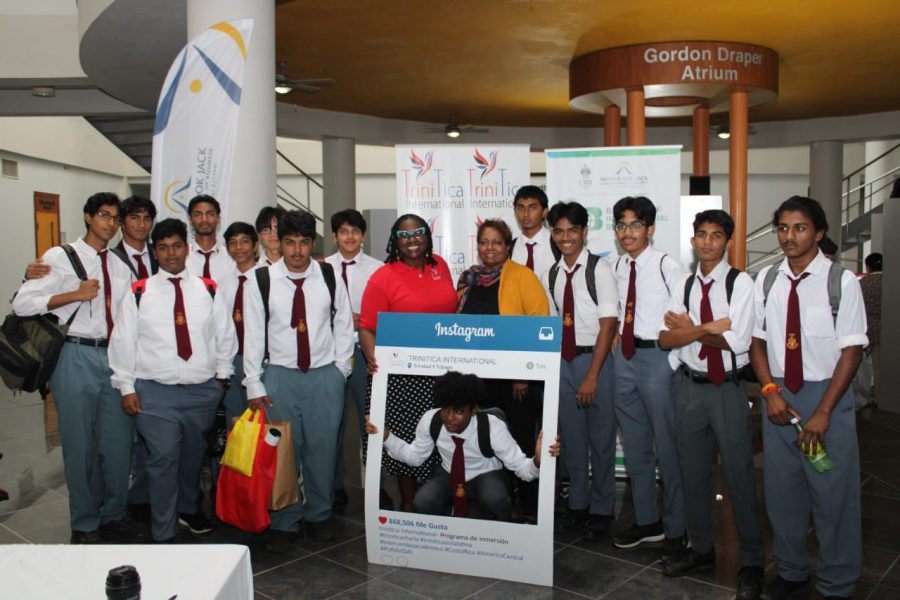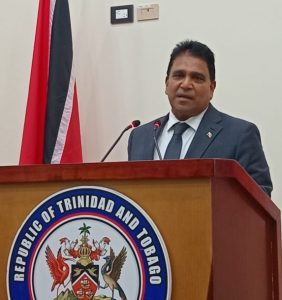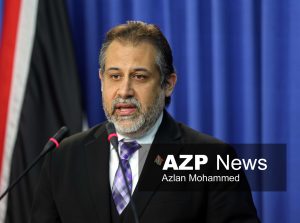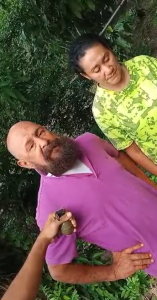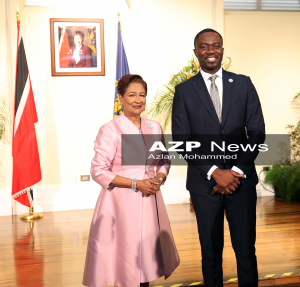By Sue-Ann Wayow
SECONDARY school pupils who are not able to travel to Spanish-speaking countries for an immersion education experience, had the countries brought to them in the form of a single annual event, Trinitica Vista Latina.
The Vista Latina Festival, founded by Aleah Guitan was held last month at the Arthur Lok Jack Global School of Business, Mt Hope.
Vista Latina stands as a testament to the rich diversity of Latin American heritage, inviting attendees to explore the wonders of language, art, and tradition.
Guitan said, “The entire day is dedicated to immersing students in Latin American culture and language. Our aim is to enhance their appreciation and understanding of the Spanish language and the rich tapestry of Latin American culture. We firmly believe that these interactions pave the way for meaningful socio-economic partnerships and contribute to the overall national development.”
Vista Latina started in 2016 at Lion’s Cultural Centre in Port of Spain.
In 2018 and 2019, Guitan collaborated with Arthur Lok Jack GSB to host the Vista Latina event in-person.
In 2020 and 2021, the festival was held virtually also in collaboration with Arthur Lok Jack GSB.
In 2022, she took a break and was determined to have the event this year with persons physically attending.
Some 11 schools with over 200 students participated in the cultural and educational event that saw the involvement of four international embassies: the Panamanian, Columbian, Mexican and Dominican Republic embassies.
“The embassies are the highlight because students want to learn more about these countries and they get to do so directly from the nationals themselves,” Guitan told AZP News.
Guitan believes firmly that immersion allows an entirely different learning experience for the person trying to learn Spanish as a second language.
She herself, has tried and tested the system having lived and studied in Costa Rica where she spent some time with a Costa Rican family before branching out on her own.
Guitan describes the Vista Latina event as “an immersion experience without leaving the shores of Trinidad and Tobago.”
It incorporates expositions from Spanish-speaking embassies here in Trinidad, and cultural aspects of Latin America through music, dance and food.
From Tunapuna, Guitan, an entrepreneur spearheading Trinitica International, a language school customised to the Spanish learner that involves courses, immersion programmes and tours, is also a member of the board of directors at the Greater Tunapuna Chamber of Industry and Commerce.
Guitan explained the meaning of the name Trinitica.
“My objective is to increase cultural integration between the English-speaking Caribbean and Central America. Hence the name Trinitica. Trini represents Trinidad, tica is what a female Costa Rican would call themselves.”
Upon her return from Costa Rica in 2012 where she pursued her Masters in Latin American Studies with an emphasis on Culture and Development at Universidad Nacional in Heredia, Guitan first started hosting Spanish classes for adults for professional purposes.
In 2018, she also obtained a Masters in Teaching Spanish as a Foreign Language from Universidad d Alcala in Spain.
The immersion programme began in 2013 as an academic exchange programme between Costa Rica and Trinidad. This continued until 2019.
Guitan has already hosted three groups of Costa Rican students in Trinidad, two groups at the secondary school level and they were hosted by two school in Tobago Mason Hall Secondary School and Bishop’s High School and one group at university level.
She is extremely grateful to the Spanish teacher at Mason Hall Secondary School Karina Dalrymple for trusting what she does.
“She trusted my work, she trusted what I had designed coming out of my experience of being in Costa Rica and she was the one who gave me the opportunity to make it happen.”
More than 20 tertiary students studying international business and international relations from Costa Rica came to Trinidad where they participated in a business immersion programme.
Guitan further explains what full immersion is.
“Full immersion means that you actually live with a Costa Rican family. You become part of that family for an entire week where you get to experience first hand family values, norms, culture, etc and of course, you get the opportunity to practice your Spanish.”
They attend a language school where they are taught by native speakers pointing out that the majority of Spanish teachers in Trinidad and Tobago are not native speakers.
Then there is the cultural and touristic part where they are taken to important sights in the host country.
Due to the Covid-19 pandemic, Guitan did not organise any immersion programmes for the years 2020 to 2023.
With the pandemic over, she is hoping to do one immersion programme in 2024 with Costa Rica and hopefully soon in Panama.
Guitan said, “For now Costa Rica remains my number one choice to do immersion programmes.They are well known for academic tourism. Academic tourism is widely explored in Costa Rica. When I went there, what sustained me was the fact that I lived with a Costa Rican family before branching out on my own.
“I know the concept of homestay and living with a family, it works. It works because it helps you as an individual develop your language skills but it also develops your cultural awareness and helps you inculcate quickly into this new environment.”
Trinidad and Tobago could also venture in that direction as it is an untapped market which could and should be explored.
Guitan said, “We have a very strong educational system. Our standard English is British English. We could if we want to and we should.”
English is still the number one second language that Spanish speakers have to learn, she added.
Guitan who is also certified in teaching English as a Second Language having taught it to Costa Rica students while living in Costa Rica, currently, teaches English as a Second language to Venezuelan migrants.
While she was unaware of reasons why Spanish may not be listed as an option as a Caribbean Secondary Education Certificate (CSEC) subject in some schools, she said the practice of learning a second language while down on paper is not always enforced and practiced.
“We do not have a culture of second language learning,” Guitan said.
She said, “I truly believe we are doing our children a grave injustice by keeping our children monolingual. The average child in secondary school in Europe can speak at least two languages or more and if it is we want to compete on a global stage, language is part of communication and we have to be able to communicate with as many people as possible in order to explore as many opportunities as possible.”
“Being able to speak a second language opens many doors,” Guitan said.
She continued, “We are doing our children a grave injustice because we are robbing them of future opportunities on the global scale. It is not just about opportunities in the region.
“I have seen and experienced academic tourism in its fullest. And academic tourism involves everybody in the community, not just the institute where the learning is taking place. We are all part of tourism. “
Guitan is suggesting that teaching English as a foreign language and not just Standard English but English for professional purposes as a service is something that Trinidad and Tobago can explore as long as there were willing people to share their time, knowledge, family, values, with students in addition to whatever they are to learn in the classrooms.
![]()


